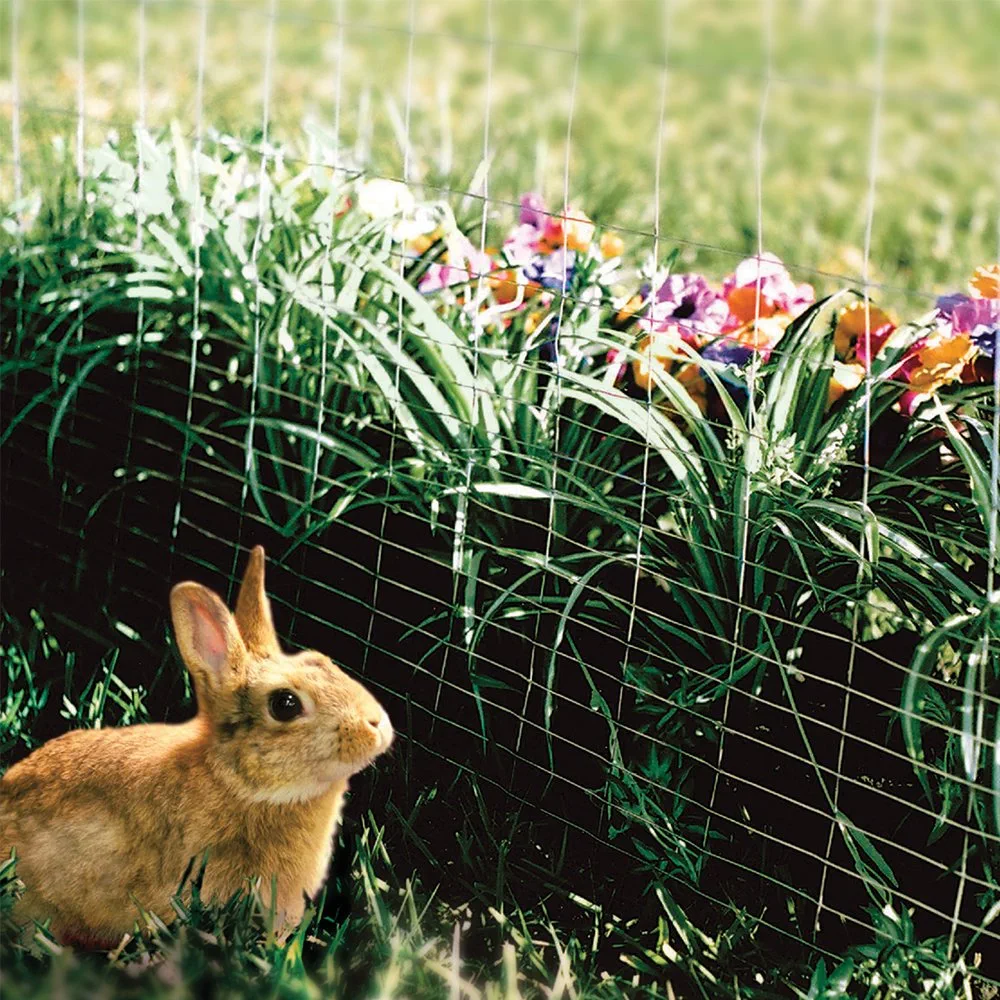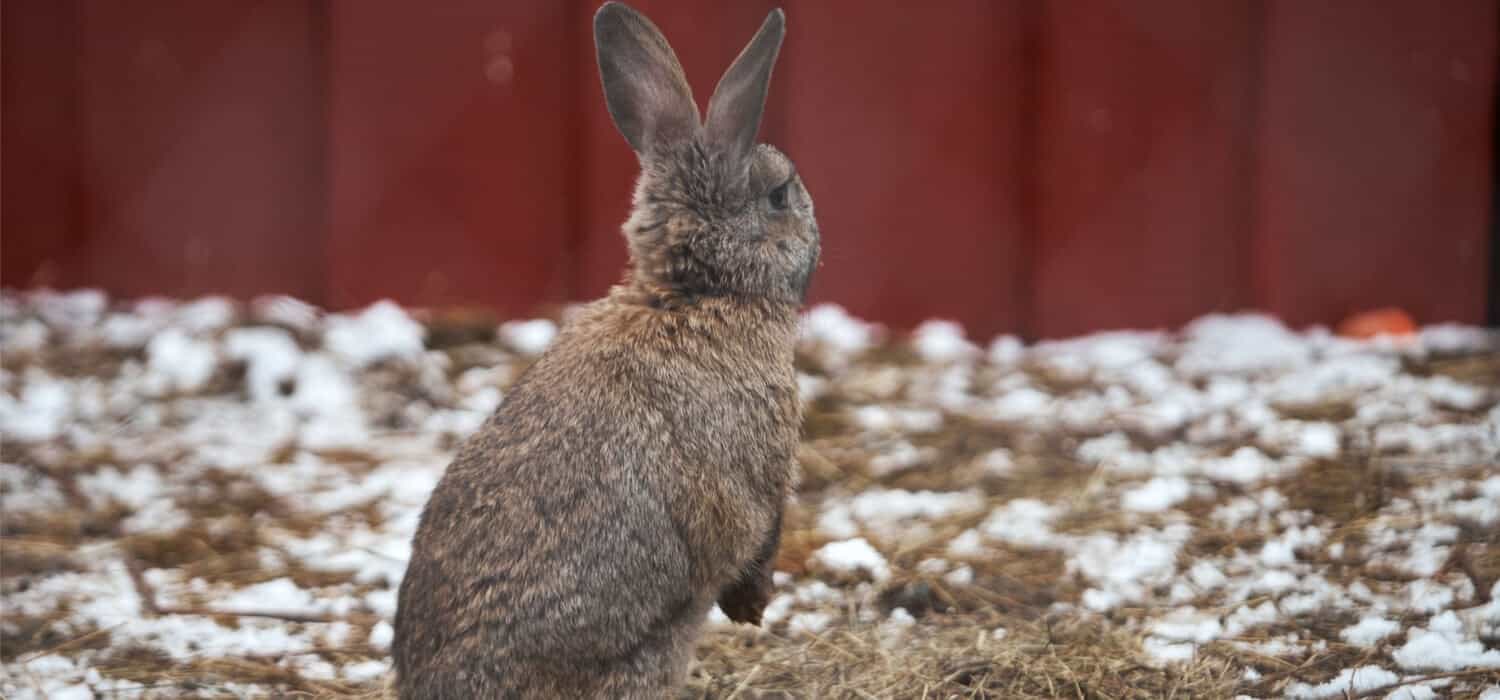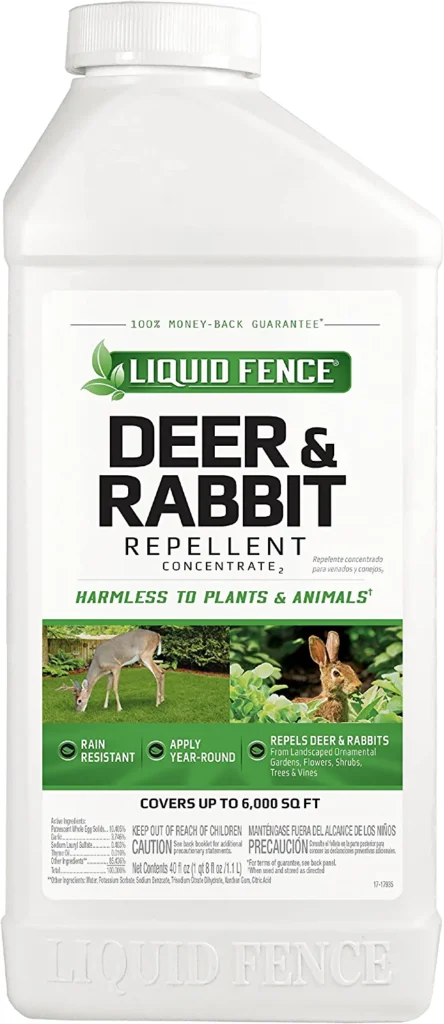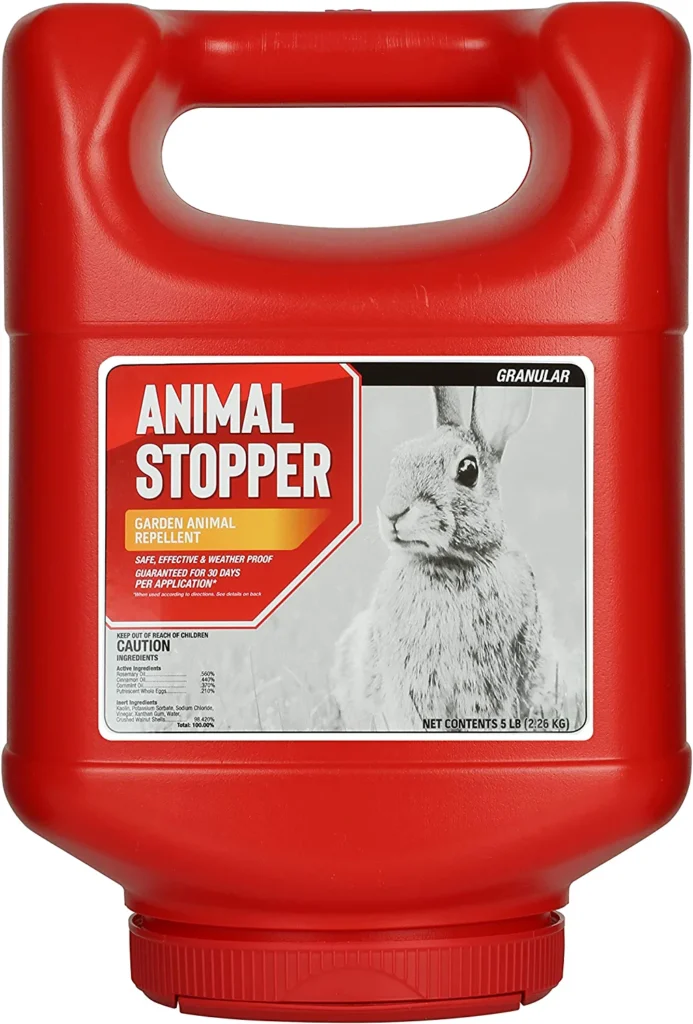Unfortunately, cute and cuddly bunnies can be responsible for the mass destruction of your garden and the undoing of hard work that took ages to accomplish. If left unchecked, they will snack on your fruits and your favorite flowers, eat your grass and dig holes that will turn your well-manicured lawn into something that resembles a landmine zone.
There are also chances that they will introduce strange viruses which might affect your pets. Regardless of how much your kids adore them, at some point, you will need to get rid of the wild rabbits in your yard.
The method you use to repel rabbits in your yard should be simple and easy to execute so that it’s sustainable. Rabbits are resilient, possess a lot of speed and agility, and have adapted to reproduce quickly over the years, thanks to many predators targeting them.
You should be able to keep up to protect your flowers, shrubs, trees, and food crops from an onslaught of rabbit damage. This article explores the basics of getting rid of rabbits in your yard, so keep reading and stay safe.
Why Are Rabbits Coming Into Your Yard?
This knowledge will help manage the infestation as you can eliminate the reasons or make it hard for the rabbits to benefit from your resources. The major reasons are food and safety, and you can manipulate these to fix the rabbit problem.
If wild rabbits are attracted to your potted plants, your flower bed, or garden plants, you can raise them so that they are out of reach. You can also trim the bushes around your yard that a wild rabbit may use to hide, so they no longer have a cover.
There are many other approaches you can employ when dealing with your rabbit problem, and we will now look at how they are successfully executed.
Scaring the Rabbits Away from Your Yard
To be effective, you need to introduce their natural predators or items that rabbits perceive as predators so that their natural survival instincts direct them to stay away from the yard.
Decoys
Scarecrows or mannequins in the form of snakes, owls, coyotes, foxes, hawks, and other known rabbit hunters will scare them away.
However, some urban rabbits might never have encountered these predators and will conclude your decoys are harmless after a few moments of trying to figure out whether they are friends or foes. It’s good practice to keep switching your decoys every three to four months to keep them scary.
Dogs
Rabbits view dogs as predators, and their natural instinct is to run away from them. They can even smell dog urine and instinctively know there is a threat in the vicinity. Most dogs also get excited chasing rabbits, so keeping a yard dog will help scare rabbits away from your yard.
Blocking Them from Accessing the Yard
You can erect a fence around the yard to act as a barrier, restricting access to the yard. Just make sure it is more than two feet high because rabbits are jumpers. The fence will also keep other pests away, a bonus benefit.
It doesn’t have to be an imposing structure that will interfere with the yard’s layout. A simple garden fence like this 308371B Garden Rabbit Fence by YARDGARD blocks rabbits from accessing your yard without interfering with its ambiance.
28 inch x 50', 1 inch x 4 inch mesh, galvanized wire, welded rabbit Gard, 4 inch top.
Repelling Rabbits from the Yard
A wide range of repellents will repulse and keep rabbits off your yard. You can choose from various designated rabbit repellent products available in the market or make your own home remedies.
Types of Rabbit Repellents
Electronic Rabbit Repellents
Rabbit repellents also come in the form of electronic devices with a mechanism for scaring away rabbits that is often triggered by motion detectors. The rabbits are spooked in different ways:
• Some will release sudden bursts of water like a sprinkler
• Others emit ultrasonic sound waves whose frequencies are above the upper limit of human hearing but are loud enough to scare the rabbits off your yard
• Others have flashing LED lights which will make them uncomfortable.
Many of these devices combine two or more of these mechanisms to enhance effectiveness. The ZOVENCHI ultrasonic animal pest repellent emits ultrasonic sound waves combined with a red light which scares the rabbits away. Its motion sensor is triggered when the rabbit steps within its radius.
Perfect for yard, patio, driveways, garage, attics, porches, boats, gardens, farms, ponds, etc. Even it is portable to take into your camping to be away from stray dogs, stray cats and pests harassment.
Rabbit Repellent Formulas
The composition of these solutions produces a scent that draws a natural aversion from the rabbits and other target animals once they have been sprayed on your plants. This will keep them off your property. They are safe for your pets and children as they are made from natural ingredients and not the harsh chemicals used in pesticides.
Rabbits are wired to instinctively avoid certain smells and tastes like urine from their predators. Meat protein, egg solids, and garlic possess sulfur, which always triggers the rabbit’s survival instinct, and the natural response will be to avoid your yard. Most rabbit-repellent formulas are based on such ingredients.
The liquids can be used to treat your flowers, shrubs, ornamental gardens, or vines. They work best on dry plants as rain will dilute the formula’s potency, prevent it from setting in, and even wash some of it away.
You can smell the formula as you apply it, but once it dries up, you won’t be able to smell it. This doesn’t mean it stopped working; the smell remains potent to the rabbit’s senses after you stop smelling it.
This Liquid Fence Deer and Rabbit repellent concentrate creates an invisible barrier that wards off these critters. It comes with different handheld bottle sizes for diverse applications.
Liquid Fence Deer & Rabbit Repellents create an invisible barrier to ward off these bothersome critters. Apply these scent-deterrent formulas year-round to hit them in the nose so they don’t come back.
Granular or Powder Rabbit Repellent Formulas
These are applied to the dens, tunnels, entries, or any other space you feel the rabbits will use to access the yard. It prevents them from foraging, nesting, or causing damage as they forge an entry. They can also be applied to the specific plants you want to protect from the bunnies. They are not foul-smelling to the human senses and can also be used on edible plants.
Messinas Animal Stopper Granular Formula uses a plant-powered formula devoid of harsh chemicals. It will deter rabbits and other intrusive animals from your yard, yet it is safe to use around your pets and kids. Other rabbit repellents that can also be bought over the counter at the hardware include fox and coyote urine.
Stop animals from foraging, nesting, causing entry damage, and eating your garden plants & flower beds. Simply pour into an empty garden spreader (hand held or push), and apply product liberally to dens, tunnels, entries and plants that need protection.
Homemade Rabbit Repellents
You can apply the same principles to make your own rabbit repellent from items that are readily available in the house.
Essential Oils and Spices
Rabbits’ strong sense of smell provides a unique opportunity to repel them from your yard if you know the right scents to use. A few drops of mint, rosemary, lemon balm, peppermint, or eucalyptus on a cotton ball will be sufficient for the task.
For the best results, you should place them along the path the rabbits use to gain access to the yard or close to the specific plants you want to protect from rabbits.
Ammonia
Soak a rag in ammonia and place it in your yard close to your priced plants or along the path the rabbits will use to gain access to the yard. It’s important to note that these repellents wear off with time and are washed off by the rain, so you will have to reapply them periodically. Without consistency, you won’t break the rabbits’ habit of coming to your yard.
Rabbit Repellent Plants
Rabbits tend to shy away from plants with strong fragrances or fuzzy, prickly, and hairy leaves like the black-eyed Susan and lavender. They also instinctively know which plants are toxic and steer clear of them.
Plants that turn off rabbits include garlic, lavender, bee balm, Siberian iris, Russian sage, Mexican marigolds, lamb’s ear, lantana, yarrow, Veronica, dusty Miller, butterfly weed, Stylophorum, sweet alyssum, ageratum, cleome among others.
Another way of getting rid of rabbits is to plant these plants in your garden as a deterrent. However, a small section of these plants is insufficient to keep rabbits off completely as they will feed around them and still destroy your garden.
You should grow an entire barrier in the direction from which they approach the farm so there is no space between them to access the yard.
The best practice is to interplant various highly fragrant and toxic plants with your flowers, vegetables, and ornamental plants. The rabbits will be both confused and repelled. Unfortunately, this will also limit your freedom to organize your yard.
Eliminating Their Hiding Spots
Rabbits are cautious and will hide where there is an accumulation of vegetation. Conduct regular inspections of your yard, looking for potential and existing rabbit hiding spots.
Keep your grass mowed short to repel rabbits, and remove any unnecessary vegetation like bushes, shrubs, and low-hanging branches. Rabbits are quite adept at hiding in these spots, and they will feel exposed when there is nowhere to hide. Wild rabbits will then move to safer areas with tall grass and other covers they can use to hide.
Seek Professional Help
Your yard might already suffer from a rabbit infestation with nests littered all over. It is much harder to get rid of rabbits when they have young ones. We advise that you contact animal control to remove the rabbits from your yard if you are not equipped to handle the situation.
You may find yourself in violation of laws governing the use of traps if you try removing them yourself. Even if they aren’t in a position to help you, they will recommend a skilled contractor who understands the laws and regulations.












